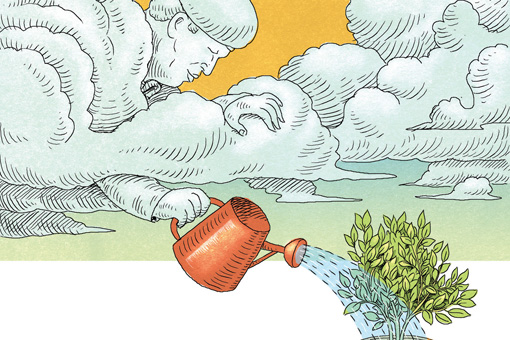The death of President Hugo Chávez is a great loss for the Alianza Bolivariana para los Pueblos de Nuestra América (Bolivarian Alliance for the Peoples of Our America—ALBA). But it is unwise to conclude from this that ALBA will disappear altogether. Chávez achieved influence for his presidency and for ALBA by expressing and representing new power relations within the hemisphere. These dynamics have not changed with his death.
Leftist governments are on the rise and the political Right has been unable to articulate a real alternative to the steady decline of capitalism. Its campaigns are based more on manipulating the media and capitalizing on opponents’ mistakes than on generating concrete proposals to reverse the human and environmental setbacks created by the capitalist system.
But ALBA is not solely the creation of chavismo. Rather, it is a government-level expression of a much deeper opposition to the neoliberal model in Latin America. ALBA emerged in 2004 as a response to the U.S.-led Free Trade Area of the Americas (FTAA), which included 34 regional countries while excluding Cuba. ALBA was preceded by the continent-wide Campaign Against the FTAA, involving organizations of workers, farmers, Indigenous peoples, students, women, professionals, faith-based communities, defenders of human rights, artists, and intellectuals, among others.
The campaign against the FTAA gave voice to widespread local initiatives against the wave of privatizations imposed by the Washington Consensus since the 1980s. Ironically, the FTAA led directly to the unification and articulation of popular discontent in Latin America—the resistance movements that spawned the region’s anti-neoliberal governments.
In late 2004, Chávez founded ALBA with Cuba—the only government that had been excluded from the FTAA negotiations. Initially, ALBA was more a cry of rebellion than a fully formed process of integration.
And while ALBA evolved, the FTAA suffered a defeat in 2005 at the Summit of the Americas in Mar del Plata, Argentina, with massive protests in the streets and Argentine President Néstor Kirchner’s remark to George W. Bush, “Don’t come here to intimidate us.” Within just a few years, locally generated integration initiatives in the region had filled the void left by the FTAA: Unión de Naciones Suramericanas (Union of South American Nations—UNASUR) in 2008; Comunidad de Estados Latinoamericanos y Caribeños (Community of Latin American and Caribbean States—CELAC) in 2011; and, of course, ALBA.
Since then, the governments of Bolivia, Nicaragua, Honduras, and Ecuador have joined ALBA, strengthening it as an anti-neoliberal political alliance and as an integration process not based on free competition or the free market. In the absence of Chávez, ALBA’s leadership must act more collectively to maintain the alliance’s forward progress.
Building on these strong partnerships, ALBA has achieved important advances in literacy, public health, mutually beneficial and equitable trade, the generation of sovereign and unconditional sources of financing, and the creation of new payment mechanisms. But ultimately, the key to progress in Latin America is not ALBA itself, but rather the continuity and enhancement of the social movement against neoliberalism—of which ALBA is one expression.
The outlook for the region’s social movements and for ALBA countries in particular is complex. It will be important to resist aggression, consolidate achievements, correct errors, and move forward while truly overcoming the pitfalls of the capitalist system. The “Vivir Bien” philosophy that comes from Indigenous movements in Ecuador and Bolivia is one example of a new social structure that emphasizes equality and respect for the environment. The processes of change in ALBA countries have been successful in redistributing nationalized economic surpluses among the poor.
But much remains to be done to break from capitalism’s model of natural resource extraction and wasteful consumption.
Neither ALBA nor any Latin American government can build a society that is fully just, equitable and environmentally responsible in the midst of capitalism’s global crisis and decline.
The fate of Latin America is intimately bound to social struggles in Europe, the United States and Asia. If the big banks and multinational corporations are able to dismantle the collective achievements of the European working class, a new “consensus” will seek to impose itself on the planet. But if the European social movements defeat this latest capitalist assault, they will open a new era of possibilities for initiatives like ALBA and for the development of alternatives.
Projects such as the Trans-Pacific Partnership (TPP) aim to revive the FTAA and extend it to Asia, beginning with the inclusion of “friendly” governments. The European Union is promoting a new wave of free-trade agreements and negotiations, one of which will allow it and the U.S. to rejuvenate their multinationals. The fate of these initiatives will be decisive for the emergence of alternative social movements.
Still, while ALBA lacks the ability to change power structures globally, it has the potential to be an alternative reference point amidst growing discontent toward the global capitalist system. To this end, unity will be necessary to overcome the impending reactionary attacks following Chávez’ death, to support the mobilization and autonomous organization of social movements, to earnestly recognize and correct errors, and to remain true to our demands for sustainable consumption models that overcome the patterns of exploitation and respect the rights of Mother Earth.




